Flux
The quote of Heraclitus states “change is the only constant….” Nothing is fixed, absolute or permanent. Interacting with the world around us, we are changing moment to moment. We are actor and acted-upon. Yet too often we cling to our cherished Categories, which are mere abstractions of our lived experience of thinking, feeling, doing in this ever-changing reality we call ‘our world.’ That mental habit seems more a game of Let’s Pretend.
The labels This and That, Valuable and Worthless, come unstuck.
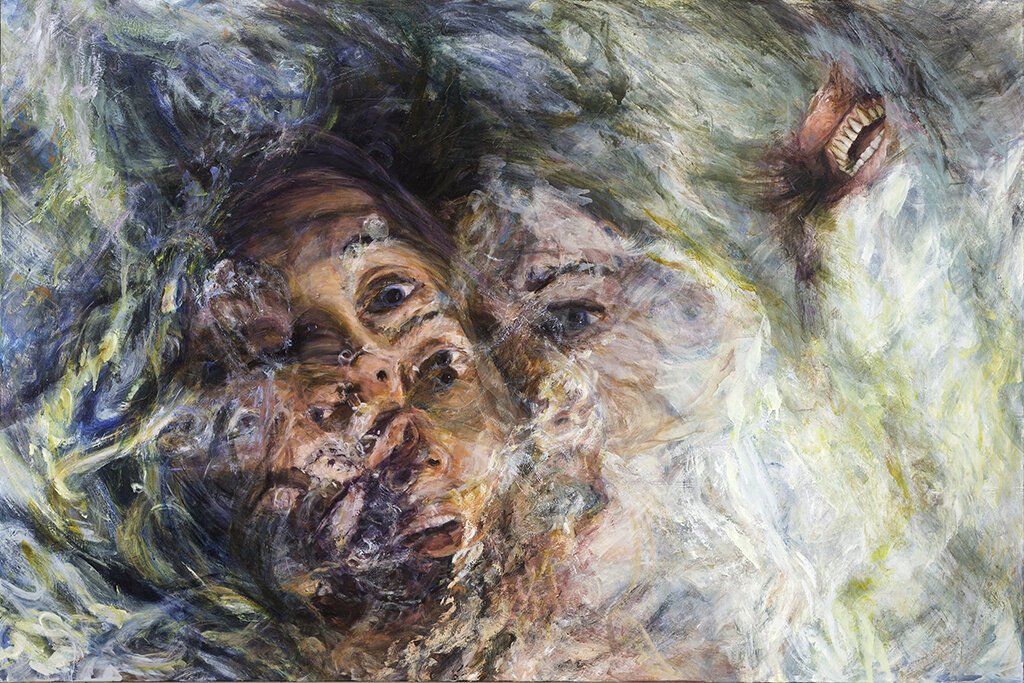
Waterfool - oil on canvas- 102 x 153cm
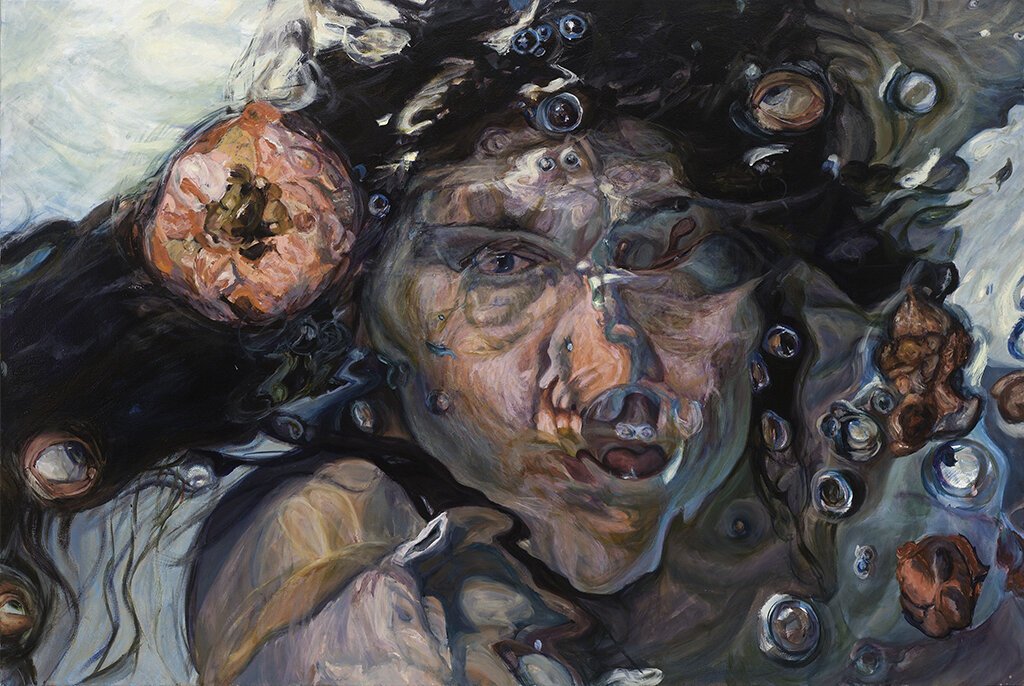
Ordeal by Water - oil on canvas - 102 x 153cm
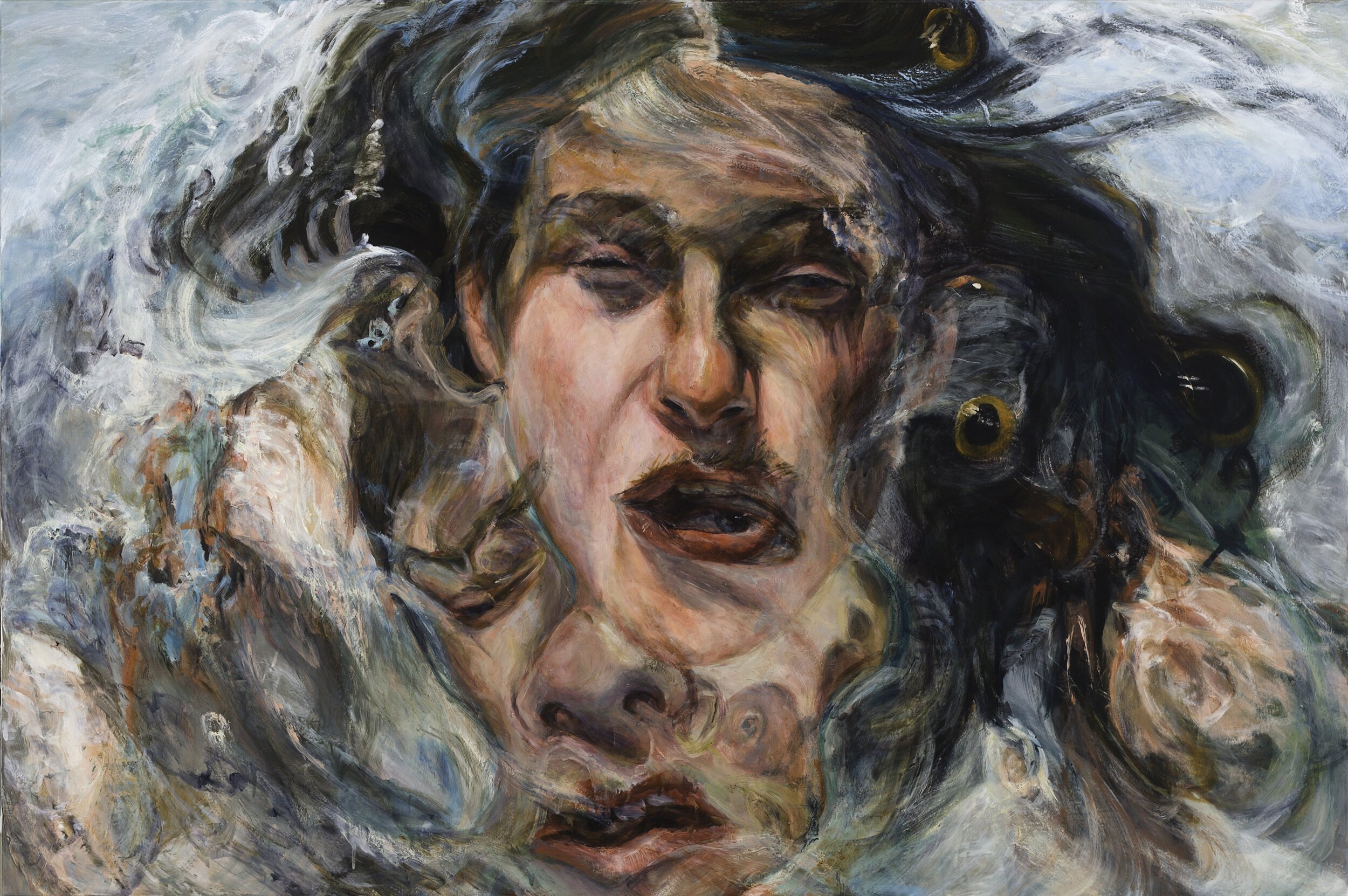
Flux - oil on canvas - 102 x 153cm
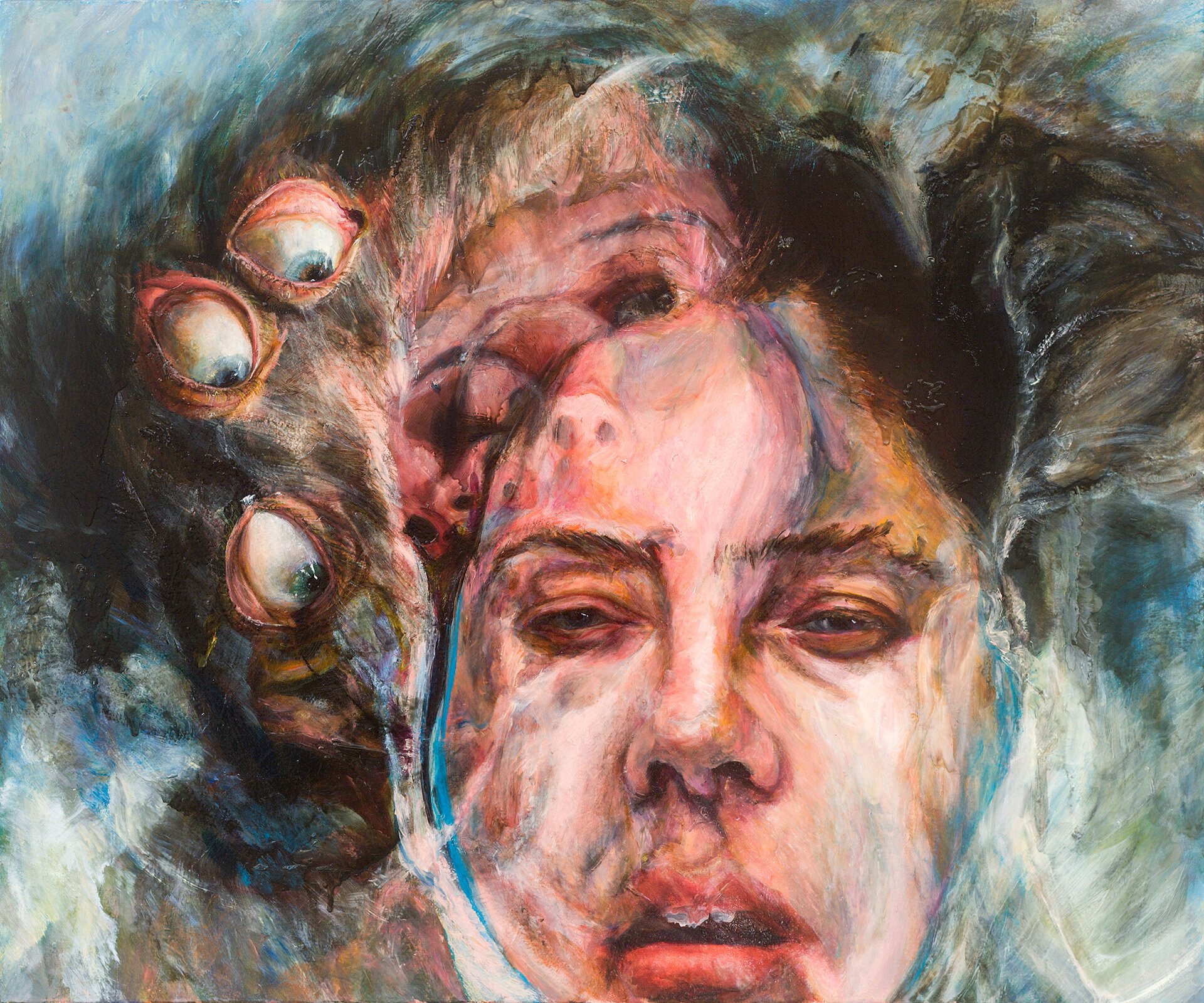
The Watcher Watched - oil on canvas 76 x 91cm
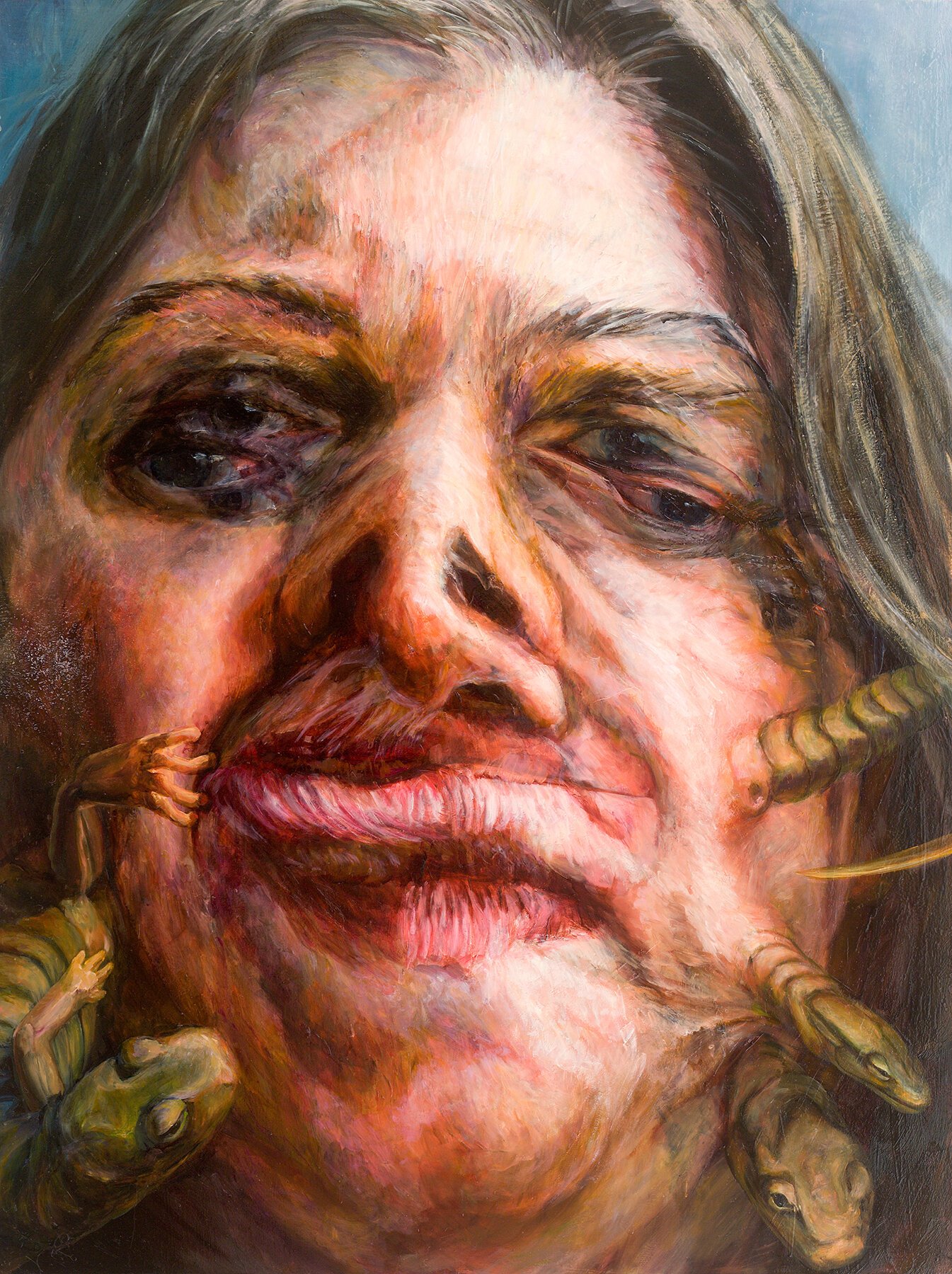
Sorry Fool - oil on canvas - 121 x 91cm
My work grows from the desire to question familiar categories, definitions, and perceptions; and to reject their assumed inherence and immutability. I try on—and try out—different versions of normality, beauty, and value. My exploration focuses on what binds or separates the apparently distinct and disparate. Images breach common dividing lines—between species, gender roles, animate and inanimate, figure and environment/ground, actor and acted-upon. I want to understand where and why boundaries take shape between ‘self’ and ‘other’, individual and normative society, consumer and consumed. Influence always moves in more than one direction.
The perceiver and the perceived, the user and the used, exist in reciprocal relationships. My wish to question boundaries, definitions, and perceptions—and to forge new ones—evolved from my childhood experience of growing up in several countries. I learned early that what is normal in one place is strange in another. There are multiple ways to perceive and to interpret what stands before me. As the images in my work depart from the normal and familiar, I ask the viewer to let categories collapse and to question the ways our perception creates our reality. The paintings reflect how I see the world and the relationships I discern there.
What we perceive—and therefore what we consider ‘real’ or ‘true’—is largely determined by our preconceptions and by the detectors or sensors we choose to turn on our world. Which detectors we use allows us to ‘see’--or miss--phenomena such as quarks and quasars; likewise, to see or miss such abstractions as intelligence, beauty, truth. We take in easily what we expect or wish to see; when we encounter something unique, we more likely turn a blind eye.